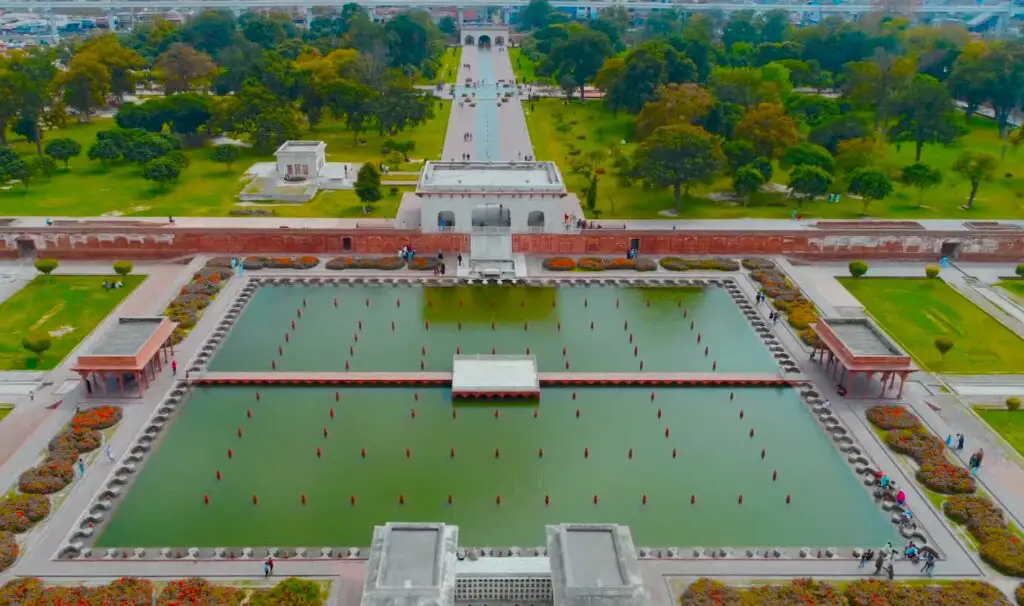Islamgarh Fort is a historic monument located in the Cholistan Desert in Bahawalpur, Pakistan. The fort was built in order to provide protection to the local population against marauding tribes.
Location of Islamgarh Fort
Nestled in the heart of the Cholistan Desert, Islamgarh Fort stands as a testament to the rich history and architectural heritage of the region. With its roots tracing back to the 17th century, this historical monument holds stories of conquest, changing rulers, and the passage of time. However, the fort now faces neglect and deterioration, highlighting the need for immediate attention to preserve this fading symbol of history.
The fort is located near the town of Derawar, which is known for its magnificent Derawar Fort. Islamgarh Fort is a smaller but equally impressive structure, with its distinct architecture and strategic location, making it a must-see destination for anyone interested in Pakistani history and culture.
Islamgarh Fort History
Islamgarh Fort was constructed during the reign of Raja Rawal Siri Bheem Singh in 1665. The fort’s original name was Bheem War Fort, reflecting its association with the ruler. It took two decades to complete the construction, with materials brought from Jassermair (India) via oxen carts, and locally made bricks used in its construction.
The fort is built on a hill overlooking the encircling desert landscape. Islamgarh Fort is made of locally made mud bricks, which have been used traditionally in the construction of buildings in this part of the world. The fort has four towers, each tower has its own staircase and front, and a main courtyard that was used for public gatherings and ceremonies.
Pictures Gallery












Features of Islam Garh Fort
One of the most interesting features of the fort is the intricate geometric patterns that adorn the walls and ceilings. These patterns are a testament to the incredible skill of the local craftsmen who were able to create such beautiful designs using only mud and water.
Visitors to the fort can explore the various rooms and chambers, which include a mosque, a guesthouse, and a dungeon. The dungeon is particularly noteworthy, as it is said to have been used to imprison prisoners of war during times of conflict.
Conquests and Renaming:
In 1780, the fort was conquered by Ikhtiar Khan Sund-i-Elahi, a Muslim ruler who renamed it Islamgarh Fort. Under his rule, a mosque was built within the fort’s premises in 1765. Later, Nawab Muhammad Mubarak Khan II defeated Ikhtiar Khan in a war, and the fort changed hands once again.
Abandonment and Conflict:
For many years, the Rajar clan resided within the fort until the 1971 Indo-Pak war. During this conflict, the fort suffered damage from shelling, prompting the clan to abandon it. The ravages of time, weather, and lack of maintenance have further contributed to the fort’s current state of neglect.
Architecture and Features:
Islamgarh Fort is renowned for its beautiful architecture, showcasing a blend of indigenous and regional influences. The fort comprises two distinct sections, each with its own walls and gates. Inside, visitors can find remnants of a mosque, wells, and underground tunnels that were once used for storage and as escape routes during times of conflict.
Preservation
Today, Islamgarh Fort languishes in a state of decay, with its structures crumbling and its historical significance fading into oblivion. The neglect of this architectural marvel calls for immediate attention from archaeologists, conservationists, and relevant authorities to initiate restoration and preservation efforts.
Islamgarh Fort is not only a historical relic but also a potential tourist attraction. Situated near the Pakistan-India border, the fort’s location adds to its cultural and strategic importance. Its rich heritage and intriguing architecture have the potential to draw visitors interested in exploring the region’s history and experiencing the charm of the Cholistan Desert.
While the fort is undoubtedly a remarkable feat of engineering and design, it is also an important cultural and historical landmark. It serves as a reminder of the rich and complex history of this part of Pakistan, which has been shaped by a variety of different cultures and civilizations over the centuries.
If you are planning a trip to Bahawalpur, be sure to include a visit to Islamgarh Fort on your itinerary. It is a truly unique and fascinating destination that will leave you with a deeper appreciation for the rich cultural heritage of Pakistan.
Islamgarh Fort, with its storied past and architectural splendor, stands as a fading symbol of history in the Cholistan Desert. Its neglect and deterioration highlight the urgent need for preservation efforts. By recognizing the fort’s cultural and touristic significance and undertaking restoration initiatives, we can ensure that this remarkable monument continues to tell its tales of the past for generations to come.







